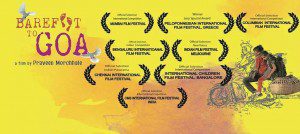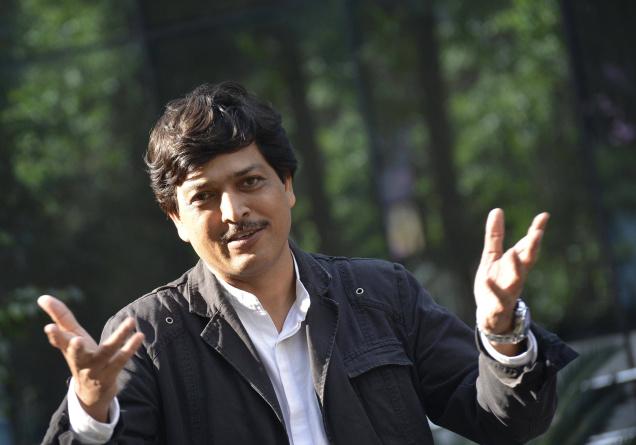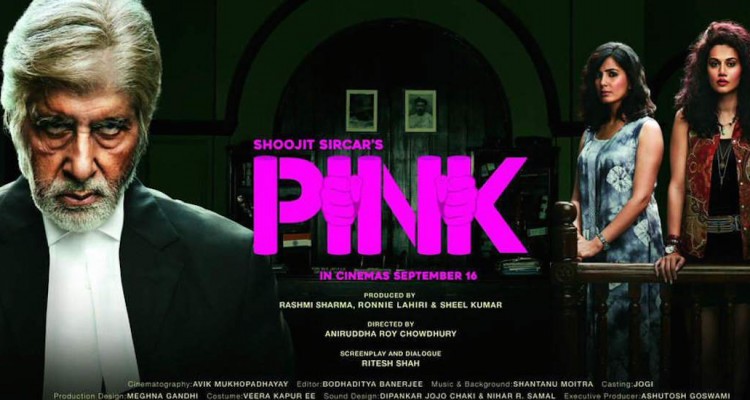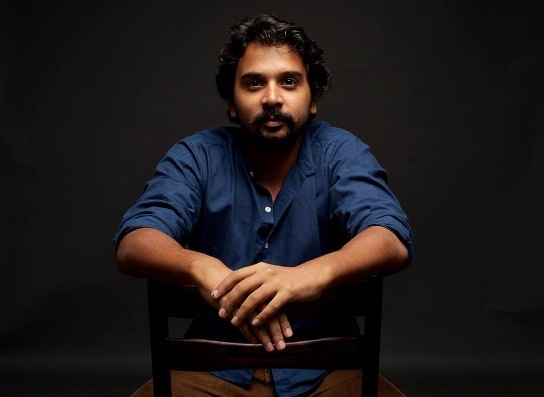There is no passion to be found playing small- in settling for a life that is less than the one you are capable of living. These inspirational lines from Nelson Mandela have inspired many lives. One of them is Praveen Morchhale, whose movie “Barefoot to Goa” is getting a lot of attention from critics and film festivals. Earlier, he has won award for best short film for his work “Jhum Jhama Jhum” at Indo American film Festival in Atlanta (USA) and this short film was screened at many international film festivals.
We recently got a chance to talk to Praveen about his journey, ‘Barefoot to Goa’ and much more.
“ Barefoot to Goa” is your debut feature film. How was the journey making this film?
I can also say that it was an eye opening life time experience working with children and non-actors in my debut film and I discovered that for me it is much easier to direct and work with children and non-actors. I made a conscious decision that almost all roles would be done by non-actors, as they express the real experience of life. Wonderful performance of non-actors including both children surprised me a lot. I am very happy that non-actors made my film special.
The biggest challenge was to make this film subtle, simple and realistic using minimal dialogs without being the verbose and preachy. Other challenges were the shoestring budget and time frame to complete film, but my team, crew and cast made it possible. They worked relentlessly.
I must say that it was pleasant to shoot in Goa. People were so helpful and supported us without expecting anything. It was a life experience for me.
 The theme of the film is based on family disintegration, strain on relationships etc. A lot of the film reflects what you have observed in real life. Could you tell us some of those poignant moments which you have recreated in the film ?
The theme of the film is based on family disintegration, strain on relationships etc. A lot of the film reflects what you have observed in real life. Could you tell us some of those poignant moments which you have recreated in the film ?
There are many scenes in the film to which I obsereved in real life and any one can relate with them. I have seen many elder people keep on waiting for their children and grand children to come to them and spend some time, keep on waiting for some letter from them which can bring smile on their face. In the film old lady waits for the letter from son, is the moment, which is very hurting. Other thing is the kindheart farmers and rural folks, I portrayed in the film. In India farmers, rural people are like that. Even they have nothing in home; still they will make sure the visitor gets best possible treatment. That humanity is now we are loosing in cities. Present day fast life has made us so busy that we have no time to talk to our children or even don’t know how to talk to children. Loneliness in family where every one is alone including children is depicted very quietly in the film. I thing whole film is very realistic and slice of the life kind of cinema, which touches us, hurts us. Those moments I recreated cinematically in the film which say a lot silently.
Why you chose the title ‘Barefoot to Goa’ ?
Barefoot is associated with childhood and innocence. Film’s two innocent protagonist travel to Goa from Mumbai to bring home their abandoned and neglected grandmother back home. Innocently and silently they raise many questions on our society, our values, our loneliness, humanity and rural urban life during their journey. It just came in mind why not to keep title “Barefoot to Goa” to sum up every thing without being verbose. Film innocently raises hard questions to us and hurts us as well
Why did you set a major part of the film ‘Barefoot to Goa’ in Goa?
I travel across India a lot and on many occasions I have seen young people neglecting their aged parents. I have observed this in many families In Goa too and now a days it’s a common to leave behind old parents. It might be due to the pressure of city life, space constraints and economic limitation. All these lead to the disintegration of the family and old age parents are left to fend on themselves at the fag end of their life and this creates an emotional havoc in aging parents at the time when they need emotional support.
Therefore I set the film premise in Goa. Goa is beautiful but beneath its beauty it too is facing a social humanitarian problem of aged people. Though it’s a universal problem and now across India you can see it. This experience and situation inspired me to locate story of Barefoot to Goa in Goa without being verbose or judgmental.
Do you think not having any formal training in filmmaking serves as a plus point to filmmakers?
As I have never been to any film school so I am not a qualified person to comment on what benefit it gives. There may be positives and negatives for attending or not attending film school. Filmmaker has to have vision and visual communication ability to tell stories. Film school expands your understanding of cinema but vision and your story telling abilities, you have to learn yourself or develop. A vast life experience is what is most important for a filmmaker to tell stories. I believe what you say and how you say is most important. Filmmaker is a visual story teller at the end of the day.
How would you describe the message of the Barefoot to Goa? Do you feel your intended message came across to your audience?
Barefoot to Goa touches many themes like old age issues, urban Vs rural, loneliness in our life, and modernity vs traditions in the contemporary Indian society. It explores the humanity in various forms without being the judgemental and audience understand film very well. It gives them space to think and understand as per their life experience. It is a simple, rustic cinematic film which manages to engage the international viewers as well as Indian, and not so much through the dialogs but through the cinematic language. My film never spoon-feeds them.
Cinema audience is very smart and intelligent. They really understand what filmmaker wants to tell. My interaction with audience at many film festivals reinforced this belief. Film silently explores many themes and audience grasp the meaning and theme as per their understanding.
What is the nicest compliment you were given (about the film)?
It was at Chennai International Film Festival screening. After the screening, an old gentleman came to me and said “Your film made me cry but I am happy to tell that I would travel next week to see my grand children” It was very touching complement. I never thought film would touch old people in such an emotional way.
Please tell us about your upcoming projects.
I am currently working on a subject in which a blind girl child sees the religious, social, humanitarian issues in Kashmir from her point of view. It’s a satire without being judgemental. Children are the worst affected in any conflict and Kashmir children are suffering most without their fault. What is their pain, dream and innocent take on these issues, I will be exploring from children point of view. Hope I would be able to express cinematically what children feel and how they deal with these issues. But it would be very realistic film using local non-actor children, people and locations. And it would be almost non-verbal cinematic tell which will leave to audience everything to take their own judgement.
What is Cinema?
Cinema is rewarding audience with unimaginable landscape of emotions through visual storytelling. A good Cinema must imbibe life in audience, engage them and evoke emotional response. Audience must get connected to story or characters or music or whatever filmmaker is trying to say. Then only I consider it cinema. Audience must carry home something either disturbing thoughts or smile after light comes inthe theatre. Cinema must deeply affect the audience. I believe Cinema must say something very strong and strongly like any other form of arts. It must take audience to different world where unimaginable things may be happening.
If a visual story is able to achieve these, I say that is cinema.
Who is director?
A film director is a story teller who commands dramatic aspect and artistic vision of the film.




